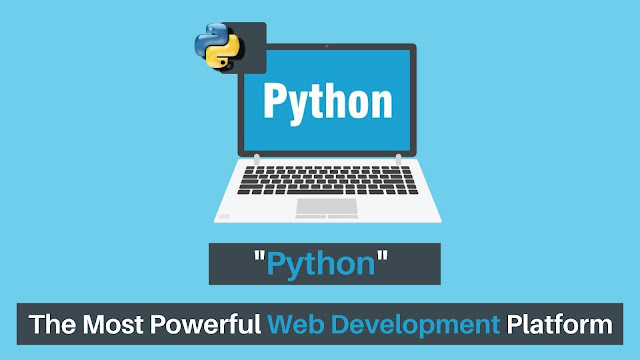A high-level programming language with dynamic typing and interpretation, Python is a name that many revere in the web development space. Though based essentially on Object-Oriented Programming, Python has enough versatility to dominate its competition while simultaneously donning multiple hats.
When it comes to coding in Python, its unique syntax gives it all the difference it needs. Languages like Java, C and C++ have a more redundant and intensive syntax, whereas the coding you employ in Python is more easily learnable and simpler.
 |
| Python Development Company Malaysia |
Python comes with a plethora of frameworks, a majority of which are used for developing websites and applications. Creating a website requires you to have complete control over both the functionality and the interface. And Python has frameworks that make web development seamless, allowing the developer to work on both the functionality and the interface.
This is where the concepts of full-stack and non-full-stack come in. The former refers to frameworks that let you manage all aspects of development without the requirement of any extra software, while the latter only provides limited solutions. Python has frameworks for both full-stack and non-full-stack requirements!
Here are the major Python frameworks that you can employ for your web development needs:
Full-stack:
1) Django:
An open-source and free-to-use Python framework, Django is employed to create complex websites and applications with large functionalities in relatively lesser time. The MVC architecture allows developers to avoid repetitiveness, ship out quicker and test their applications immediately. Django comes with a plethora of libraries that help you avail a number of components and packages, employ reusability modules and focus better on delivering quality applications through Python development.
2) Web2py:
Web2py is a cross-platform web app framework for Python development. Equipped with an editor, debugger and deployment module, Web2py is perfect for developing applications across Linux, Mac, Google and Windows interfaces. What makes this an incredible framework is the deep level of security it provides; applications developed on Web2py have cybersecurity measures instilled.
3) CubicWeb:
Yet another open-source Python framework, CubicWeb is based on the data model. CubicWeb was developed by Logilab for separating views and models. Multiple cubes combine to create databases, web servers and configuration files!
4) TurboGears:
Mark Ramm and Kevin Dangoor developed this free-to-use data-driven framework. TurboGears supports multiple databases and has a number of libraries. Along with this, it also has a web server gateway interface that allows developers to add complex widgets to their apps.
5) Pylon:
Though developed long ago, in 2010, Pylon is lightweight and emphasizes on developing applications swiftly. Since it follows languages like Ruby and Perl, it makes web development incredibly flexible. Pylon merged with the Pyramid framework is most commonly used for testing.
6) Giotto:
Giotto is a Python development framework, which like most others in Python follows the MVC model. To make web development effective and swift, it separates the Model, View and Controller elements from each other. This makes it easy for the designers, admins and developers working on the project. Giotto can also be used for stellar website and web app creation!
Non-full-stack:
1) CherryPy:
An open-source and object-oriented Python framework, CherryPy can run on most operating systems seamlessly, provided they support Python. CherryPy allows for swift running of HTTP servers simultaneously. It also provides the tools necessary for caching, authorizing and encoding. The built-in plugin system in CherryPy makes development a lot easier.
2) Bottle:
Lightweight and robust, Bottle is a microframework is used to create small web applications with a single source file. Though it supports different databases and plugins, Bottle isn't suited for heavy apps.
3) Sanic:
Developed to process faster than other frameworks, Sanic holds a record for the most requests processed in a second!
Each of these Python web development frameworks have pros and cons of their own, and employed right can augment your venture like no other! Avail top-notch Python development today and witness the brilliance this language carries - call Openwave. The leading Python development company in Malaysia, at Openwave you'll find the best web development solutions customized for your business needs. Reach out to us today to get started!
No comments:
Post a Comment